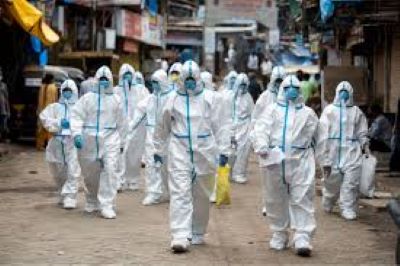The world remains unprepared for another pandemic, according to the International Pandemic Preparedness Secretariat (IPPS) which published its Fourth Implementation Report of the 100 Days Mission (100DM) last Friday.
The IPPS is an initiative aimed at ensuring global access to diagnostics, therapeutics, and vaccines (DTVs) within 100 days of a public health emergency of international concern (PHEIC)
Critical gaps remain, particularly in developing and distributing diagnostics and therapeutics for diseases with pandemic potential.
Only six new diagnostic tests (for Chikungunya and Ebola) and one therapeutic (Ebola monoclonal antibody treatment) were approved, with no new vaccines for priority pathogens from Scorecard 1.0.
Seven vaccines entered Phase 1 trials, but only one advanced to Phase 3. The therapeutics pipeline saw just two candidates progress to phase 1 and 2 trials, highlighting limited development for non-COVID pathogens.
ALSO READ US withdrawal: WHO freezes recruitment, cuts travel amid financial crisis
Non-COVID funding for diagnostics, therapeutics, and vaccines fell by 31% from 2022 to 2023, with sharp decreases for Rift Valley Fever (92%), MERS (84%), and SARS (77%), while overall R&D funding for priority pathogens remains reactive.
The US government accounted for 60% of global R&D funding (68% excluding COVID-19), highlighting the need for other funders to step in and share both investments and benefits.
“With the world still grappling with the impacts of COVID-19 and the emergence of new threats like H5N1 and mpox, the need for the 100 Days Mission has never been more urgent,” said IPPS chair Dr Mona Nemer in a IPPS media release.
“Despite progress, significant gaps remain in diagnostics, therapeutics, and vaccines that must be addressed through sustained investment, harmonised regulatory frameworks, and global collaboration. The clock is ticking—now is the time to act decisively to strengthen our collective health security and ensure no country is left behind,” added Nemer, who is Chief Science Adviser of Canada.
Three action areas
The 100 Days Mission Implementation report highlights three key areas for action in 2025 that would ensure the world is better prepared for future outbreaks. The report calls on all stakeholders to work together to:
- Reinvigorate the therapeutics pipeline with a focus on early-stage R&D: Prioritise early-stage research and development to advance therapeutics for priority viral families, ensuring robust pipelines are prepared to address emerging threats.
- Enhance coordination to implement the Diagnostics 100DM roadmap: Collaborate with global partners to implement the 100 Days Mission diagnostics roadmap, improving alignment and advancing innovation across the diagnostics sector.
- Sustain clinical trial infrastructure and strengthen preparatory regulatory approaches: Ensure clinical trial networks remain functional between pandemics and adopt harmonised regulatory approaches to accelerate approvals during emergencies.
Case studies
The report also includes a case study on lessons from the mpox response, which highlights the competing health priorities, evidence gaps and institutional dynamics that affected the speed of the response.
The report also highlights Rwanda’s response to the 2024 Marburg outbreak as a model of 100DM principles in action at a country level. By leveraging pre-established partnerships and rapidly deploying vaccines and therapeutics, Rwanda reduced the outbreak’s fatality rate from 88% to 22.7%. It also enabled trials of vaccines and therapeutics within nine days of the outbreak being declared.
Looking ahead, the IPPS calls on G7 and G20 leaders, with Canada and South Africa respectively assuming their presidencies for 2025, to catalyse global action by:
- Accelerating diagnostic, therapeutic and vaccine R&D for priority pathogens with equity embedded by design
- Agreeing a shared framework for regulatory preparedness in order to increase harmonisation and safely accelerate emergency authorisations.
- Enhancing collective health security by expanding biosafety, biosecurity and pre- clinical capabilities
With just two years left in its mandate, the IPPS remains committed to working with all partners to drive systemic change and ensure that the lessons of COVID-19 and subsequent outbreaks result in a safer, more prepared world.


